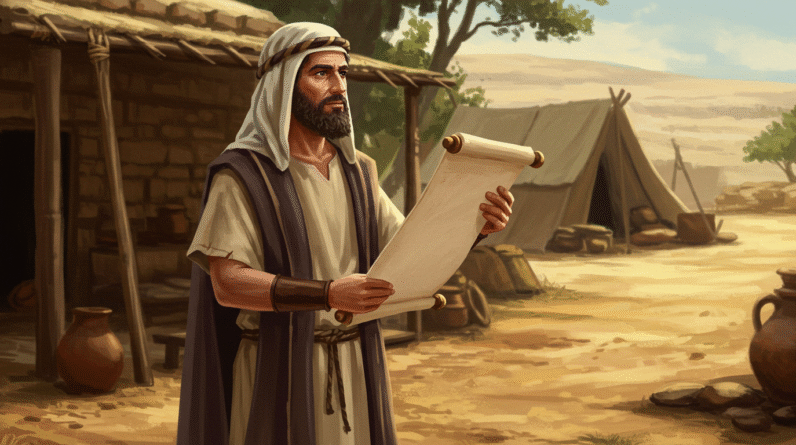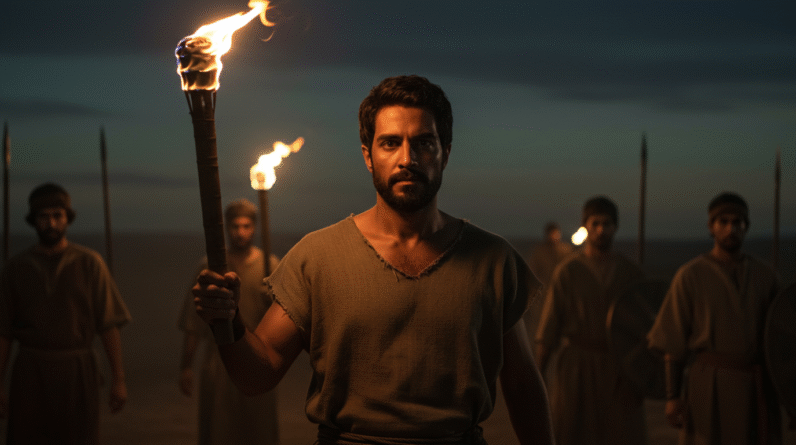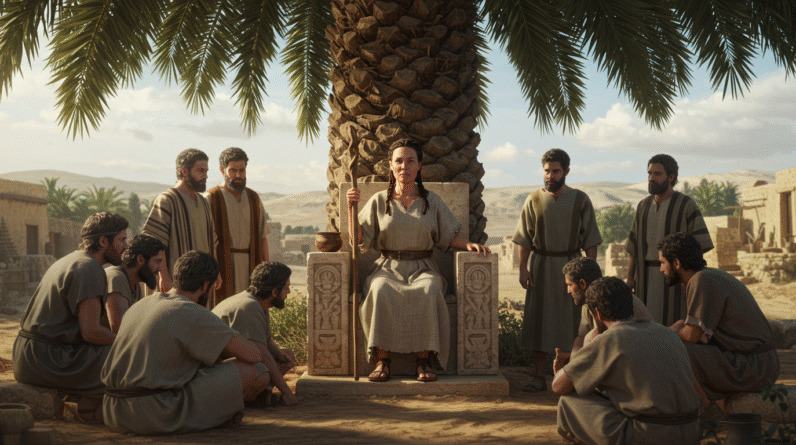Deborah’s Song: A Victory Hymn Of Faith And Triumph
Imagine a world where music isn’t just a form of entertainment but a powerful tool that shapes spiritual and cultural identity. Sounds intriguing, right? In the biblical narrative, songs often served as expressions of divine interaction and human emotion. One such profound piece of musical literature is Deborah’s song found in Judges 5. Let’s journey together through this narrative, unpacking its layers of victory, faith, and courage and see how it resonates in today’s world.
The Context: Setting the Stage
Before delving into Deborah’s song, it’s crucial to understand the backdrop. During the time of judges in Israel, the land was in turmoil, rife with conflicts and oppression. The Israelites, struggling under Canaanite dominance, longed for relief. This turbulence set the stage for a remarkable woman leader—Deborah, a prophetess who would rise as a judge to lead her people. Her narrative is a testament to extraordinary leadership and unwavering faith.
Who Was Deborah?
Deborah was not your typical leader; she was a multifaceted woman in a patriarchal society. As the only female judge mentioned in the Bible, she broke societal norms. Her wisdom and discernment were renowned, and people from all over would seek her counsel under the palm of Deborah Judges 4:5. Her role as a prophetess and judge speaks volumes about her spiritual and civic influence.
The Battle Against Canaan
The primary narrative revolves around the Israelites, led by Deborah and Barak, in battle against the Canaanite army commanded by Sisera. With Sisera’s 900 iron chariots, the odds were stacked against the Israelites Judges 4:3. However, Deborah’s unwavering faith in God’s deliverance fueled the Israelites’ courage. Under her prophetic guidance, they engaged in a victorious battle, which paved the way for Deborah’s song of triumph.
Analyzing Deborah’s Song: A Symphonic Masterpiece
Deborah’s song is not just any song; it’s a victory hymn, a poetic masterpiece of faith and triumph. Found in Judges 5, it encompasses 31 verses filled with vivid imagery, symbolic language, and historical allusions.
The Beginning: A Call to Remember
The song opens with a call to remembrance—a powerful admonition to acknowledge the Lord’s intervention in the battle Judges 5:2. It’s a poignant reminder of how crucial it is to remember past victories and the divine role in those triumphs.
The Celebration of Leaders and Volunteers
Deborah’s song beautifully celebrates the unity and willingness of leaders and volunteers Judges 5:9. This segment is a heartfelt recognition of collective effort, emphasizing that triumph is achieved not by one but through communal support. Isn’t it inspiring to see how collaboration and faith can lead to success against daunting odds?
Natural Wonders and Divine Intervention
In vivid, metaphoric language, Deborah recounts natural phenomena as divine interventions during the battle Judges 5:4-5. These depictions of the earth shaking and celestial elements in action allude to God orchestrating the victory. What a powerful way to articulate faith and divine presence!
The Role of Jael: Courage Personified
One of the song’s compelling characters is Jael, a heroine whose bravery is lauded in a gripping narrative twist Judges 5:24-27. Her daring act of killing Sisera, whom she deceived to lull a sense of security, underscores individual courage contributing to the larger victory. Jael’s role reminds us that bravery often comes from unlikely places.
The Reflection on Sisera’s Defeat
Deborah’s song doesn’t shy away from the harsh realities of battle, providing an unflinching look at the aftermath of Sisera’s defeat Judges 5:28-30. The imagery of Sisera’s mother waiting in vain captures the bittersweet truth of triumph—it often comes hand in hand with loss and sorrow.

The Song’s Significance: Faith and Triumph Intertwined
So, why does Deborah’s song matter today? Beyond the historical context, its enduring significance lies in its testament to faith, leadership, and the power of divine intervention. Let’s delve deeper into these facets.
Faith as a Foundational Pillar
Deborah’s song underscores faith as the cornerstone of victory. Her trust in God’s promises and her exhortation to remember divine acts of empowerment exemplify unwavering faith. This element resonates with anyone facing challenges, a reminder that faith can fuel resilience and hope.
Leadership Beyond Conventional Norms
Deborah’s leadership is a masterclass in transcending societal expectations. Her ability to inspire and mobilize a nation highlights the importance of inclusive and perceptive leadership. Isn’t her story a powerful reminder that leadership knows no gender, and real influence can stem from integrity and vision?
The Interplay of Human Agency and Divine Will
The narrative champions a profound theological truth—the coexistence of human agency and divine will. Through Deborah, Barak, and Jael, the story illustrates human initiative aligned with divine purpose, showing how collaboration with divine intent leads to victory. This dynamic can inspire anyone seeking purpose and meaning in life’s battles.
A Timeless Call to Collective Unity
Deborah’s song celebrates not just individual heroism but collective participation. The triumph of the Israelites was a shared achievement, emphasizing the strength found in unity. This timeless call to collaborate in pursuit of common goals is as relevant today as it was centuries ago.
Applying Deborah’s Song to Today’s World
While hurtling through the complexities of modern life, it’s fascinating to see how Deborah’s song can be a beacon of inspiration. The values of faith, leadership, and collaboration are universal, transcending time and space. Let’s explore some ways we can apply these lessons today.
Cultivating Faith in Overcoming Challenges
In a world often brimming with uncertainties, Deborah’s song inspires us to cultivate faith. By reflecting on past victories and divine interventions, we can find the strength to face present trials. Remember, faith is not just a passive belief but an active stance.
Redefining Leadership in Modern Contexts
Deborah epitomizes how leadership can be transformative beyond societal norms. Today, as we encounter diverse challenges, adopting her model of empathetic and inclusive leadership can foster significant impact and change.
Embracing Unity for Social and Community Progress
The power of unity portrayed in Deborah’s song is a call to action for collective effort in addressing societal issues. Whether it’s community building, social justice, or environmental stewardship, unity remains a catalyst for lasting change.
Conclusion: A Song Worth Singing
Deborah’s song is more than a historical artifact; it’s a living anthem of hope, courage, and faith. As we navigate the complexities of today’s world, let this victory hymn be a reminder of the strength found in collective action, visionary leadership, and unwavering faith.
Explore More
For further reading and encouragement, check out these posts:
👉 7 Bible Verses About Faith in Hard Times
👉 Job’s Faith: What We Can Learn From His Trials
👉 How To Trust God When Everything Falls Apart
👉 Why God Allows Suffering – A Biblical Perspective
👉 Faith Over Fear: How To Stand Strong In Uncertain Seasons
👉 How To Encourage Someone Struggling With Their Faith
👉 5 Prayers for Strength When You’re Feeling Weak

📘 Jesus and the Woman Caught in Adultery – Grace and Mercy Over Judgement
A powerful retelling of John 8:1-11. This book brings to life the depth of forgiveness, mercy, and God’s unwavering love.
👉 Check it now on Amazon
As a ClickBank Affiliate, I earn from qualifying purchases.
Acknowledgment: All Bible verses referenced in this article were accessed via Bible Gateway (or Bible Hub).
“Want to explore more? Check out our latest post on Why Jesus? and discover the life-changing truth of the Gospel!”








